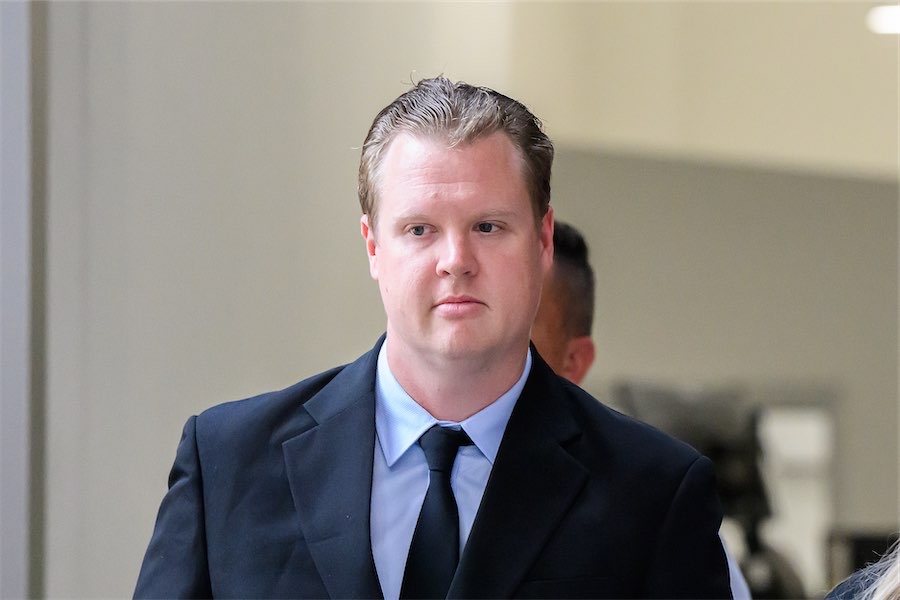
ESSENTIAL trade professionals are becoming endangered and, if there’s no action soon, their knowledge, experience and insights will be lost forever.
So says Andrew Pearce, senior conservator of Endangered Heritage.
“If we’re not careful, we’re not going to realise what we’ve lost until it’s too late.”
Andrew says these precious, required trades include, but are not limited to, barrel makers, stone carvers, sewing machine repairers, gilders and scientific glass blowers.
“They are not these sort of quaint, disposable skills,” he says.
“We actually still need them. While there are a few people that have started self-teaching off what they can find on YouTube, but in many cases you’re being taught by somebody who taught themselves by just figuring it out.
“So many of these industries have been around for hundreds of years, and the professionals know the paths you don’t go down, the mistakes and all of the wrong turns, from learning by experimentation.
“To sit down and try and do it again from scratch, once these skills are lost, make all the same mistakes as everybody’s already made, it’s just so inefficient, it’s stupid.”
From the Endangered Heritage point of view, Andrew says it would be more than ideal to preserve the skills that we have and not lose them in the first place.
Conservation experts, Endangered Heritage was established just after the 2003 bushfires. Founder Victoria Pearce, a trained textiles conservator, lived in Duffy at the time.
Andrew says the people in her suburb, in many cases, lost almost everything.
“Victoria helped them to care appropriately for the few possessions that remained through public outreach and free community training showing people how to store precious belongings so they didn’t degrade.”
Endangered Heritage is running a National Endangered Skills and Trade Show (NESTS) at the Old Bus Depot Markets, Kingston, October 13-15.
“NESTS is primarily about getting public awareness, and then being able to lobby the government for support, to show these skills need to be saved,” says Andrew.
“In many instances, there is a financial barrier. In 1996, I think it was, they changed the apprenticeship structure in Australia, to drastically reduce the number of apprenticeships that were on offer.
“Apprentices get paid a very, very low wage that recognises that you’re not producing any output for your employer that they can sell to a customer, and they’re also putting a lot of their time into training.
“As soon as you remove the apprenticeship structure from an industry, it means that FairWork says you have to pay them ‘X’ dollars an hour, without recognising the fact they’re being trained.
“This puts many employers in a position where they simply can’t afford to do the necessary training.
“There are options, but it’s not as simple as setting up a new CIT course for training. Blacksmithing, for example, can become a niche in a whole different set of pathways, so you don’t want everybody trained the same.”
Andrew says children and adults have also stopped aspiring to actually use hand skills in the first place.
“I think there’s a lot of people who’ve spent much of the last two decades living a virtual life,” he says.
“There’s a lot of people out there who I don’t think have ever made anything outside of Minecraft. The days of sitting down and carving a model boat from scratch, or sewing their own doll clothes, knitting their own jumpers, building kites or billy carts, it has just stopped, no one does that any more.
“But, in saying that, I think there’s a growth in interest re-emerging now, as people become more aware.
“Picking up a trade like this is not going to lead to a dead end, low-paying career. There are people in these particularly niche fields that are now in very, very high demand because there are so few practitioners in Australia, or the world, so they can pretty much name their price. So I think it’s something that people really can and should start aspiring to do.”
Endangered Heritage wants to be the fence at the top of the cliff, not the ambulance down in the valley, says Andrew.
“I got into this because we care about heritage, we really need to start growing that mindset to see that these skills are important to save and that actually we should be trying to build up our stash of national living treasures,” he says.
“Our long-term hope is that actually NESTS would become somewhere that was almost like a matchmaking service for trades. A business who wanted to get a trainee could come along and display, and people who were looking at starting a trade or going into a new role or specialist vocation could come along to see what’s available, potentially finding themselves an employer.”
NESTS 2023, Old Bus Depot Markets, Kingston, October 13-15. Visit endangeredskills.com.au
Who can be trusted?
In a world of spin and confusion, there’s never been a more important time to support independent journalism in Canberra.
If you trust our work online and want to enforce the power of independent voices, I invite you to make a small contribution.
Every dollar of support is invested back into our journalism to help keep citynews.com.au strong and free.
Thank you,
Ian Meikle, editor





Leave a Reply